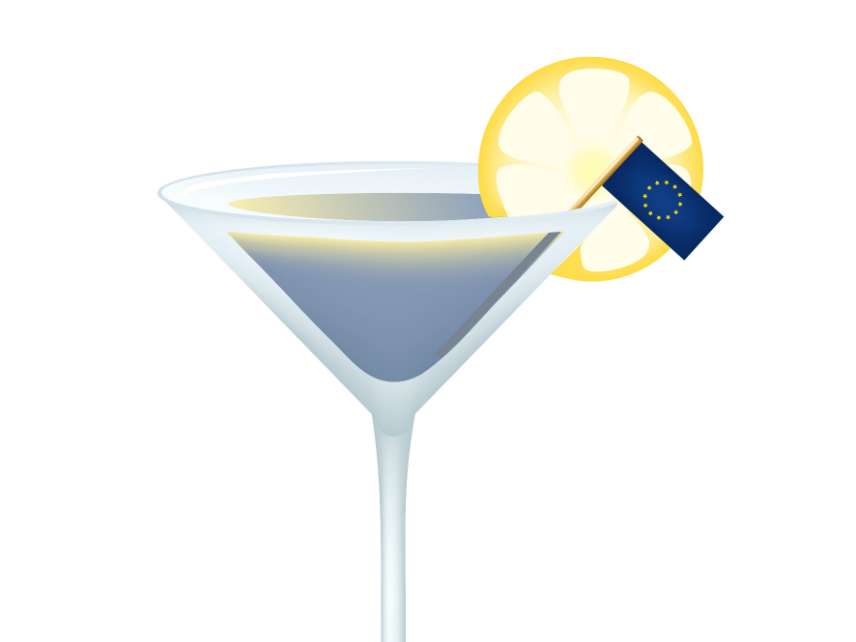E.U. Parliament Votes to Ban Plastic Straws
A plastic curtain has descended over Europe.

A specter is haunting Europe—the specter of straw bans.
On Wednesday the European Parliament, the legislative arm of the E.U., voted 571–53 to approve a new continental strategy for cracking down on single-use plastics. The measure includes outright prohibitions on such popular items as straws, cotton buds, and disposable cutlery.
"We have adopted the most ambitious legislation against single-use plastics," says Frédérique Ries of Belgium, who sponsored the initiative. "It is essential in order to protect the marine environment and reduce the costs of environmental damage attributed to plastic pollution in Europe."
Wednesday's legislation also calls for a 25 percent reduction in the use of plastic food containers, cups, and other items that were not deemed as easily replaceable as straws. Other products will be hit with new design requirements, such as a mandating that caps be tethered to single-use plastic bottles.
The legislation also requires that the fishing industry cover the costs of collecting discarded fishing gear. The industry will also be on the hook for paying for plastic pollution awareness campaigns.
In addition, E.U member countries will be tasked with reducing waste from cigarette filters—the most commonly found plastic item on beaches and coastlines—by 80 percent come 2030.
All these provisions track pretty closely with the plastics proposal crafted the European Commission (the E.U.'s bureaucratic arm) in May. The European Parliament will now have to enter into negotiations with the Council of Ministers, a body comprised of national officials from member states, before the legislation can go into effect.
On Monday, the U.K.—currently attempting to free itself of Brussels' bureaucracy—announced that it hopes to have a plastic straw ban in effect by October 2019.
This all adds up to a big hit to consumer freedom across the continent. And while the intentions of straw banners are good, it's unlikely that these restrictions will do much to improve the environment.
The E.U.—including the U.K.—contributes roughly 1 percent of the amount of plastic entering the ocean each year. Specific items such as plastic straws and stirrers contribute far less. Eliminating these products from the waste stream will have an incredibly marginal effect on the environmental consequences of marine plastic pollution.
And while some might argue it is better to do something than nothing, straw bans do come with costs—for the very young, the very old, and the disabled, who often require straws to consume beverages; for many businesses, which now will have to make do with more expensive replacements; and for consumers' ability to choose what utensils work best for them.
